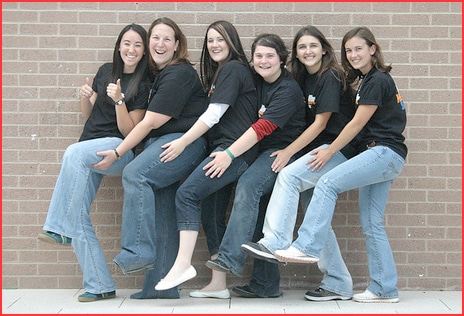
Well, of course Maggie has legs. Not only does she have them, they’re too big, along with the rest of her. Or so thinks the insecure 14-year-old protagonist of a work of poetical fiction by Paul M. Kramer, who has also written children’s books about divorce, bedwetting, and other heavy issues.
In November, Childhood Obesity News said:
Maggie Goes on a Diet has gleaned a mountain of publicity… Some have threatened to boycott Amazon.com if the online bookstore dares to carry the book. Others refute the idea that healthy eating and exercise are the entire answer to childhood obesity.
Jennifer Lemons, who wrote a feisty assessment of the book, seems to feel that the story suggests that an obese teenager brings the bullying and unkindness of others upon herself (or himself). In other words, that the underlying message is to somehow blame the victim. Lemons says:
Maybe the childhood obesity epidemic would be better combated with a whole body wellness message. Teaching children (and adults, frankly) to respect themselves enough to treat themselves well, rather than to feel ashamed of who they are, seems a heck of a lot healthier, doesn’t it?
But Maggie‘s author, Paul Kramer, has said elsewhere that his goal in writing the book was to motivate children of all ages to break old negative eating habits and begin new ones that promote health. What’s not to like? Kramer aimed for the character Maggie to be a good role model that young people could identify with and emulate.
And Maggie is like so many other kids. As Lemons articulates, the girl:
[…] dreams of achieving popularity, wearing cuter clothes, and becoming a soccer star. Through a series of smart choices regarding diet and exercise, Maggie slims down and all of those dreams come true.
Lemons kind of gently scoffs at the idea that Maggie’s determination and willpower are empowering. But, in real life, intention is a very important factor in achievement. Determination inspires an athlete to run around the track one more time, and the student to put in one more hour of hitting the books.
To become really good at something, Malcolm Gladwell tells us, takes 10,000 hours of practice. Maybe the maintenance of a healthy body requires the constant practice of determination and willpower. What’s so bad about that? Anything worth doing requires effort. It’s not the whole picture, but it does play a part.
Lemons does bring up some excellent points, gleaned from her own experience in group therapy. When a person successfully fights obesity, it’s a big unpleasant surprise to find out that losing weight hasn’t solved all problems. She says:
Those of us who were plagued by bigger issues still had all of the emotional baggage, but without the familiar, comfy blanket of fat that we felt kept us safe from the world.
A similar shock happens to lottery winners when they learn that everything doesn’t magically change. This is why such an important part of any recovery is the learning of new life-coping skills.
Lemons also dislikes the book’s cover:
… [A]n illustration of chubby Maggie holding up a pretty pink dress, clearly too small for her, while looking in the mirror and seeing a slimmer Maggie for whom the dress is just the right size.
What’s the problem? Numerous self-help systems assure us that the more fully we can imagine the desired outcome, the more this envisioning can stoke the fire of change. Many people attest to the essential power of visualization, and there’s nothing wrong with that, either.
On the other hand, Lemons also speaks directly to parents with excellent advice:
As someone who is overweight, I suggest that if your child is struggling with self-esteem issues you spend lots of time with them telling them how proud you are of everything they do. And take them for a walk. And feed them good foods.
Dr. Pretlow applauds Maggie Goes on a Diet, saying:
The book gets the overweight/obesity issue in kids out in the open. Those whose ire was raised… are irrationally hypersensitive about eating disorders. Any mention of the word ‘diet,’ in regard to children, sets them off. Yet, for obese children we absolutely must talk about weight loss, as their excessive weight is a substantial health risk.
And this is the segue into a piece of news. Maggie also has legs in the show-biz sense of the idiom, meaning that an idea has momentum and potential, the ability to get up on its own two feet and carry itself even farther than the point to which its creator has already brought it. The publication of Maggie Goes on a Diet was not just the end of one process, but the beginning of another one — the co-authoring of a new book, Why Are We Fat?, by Dr. Pretlow and Paul Kramer. Watch this space!
Your responses and feedback are welcome!
Source: “Maggie kicks some ass,” RVA News, 09/05/11
Image by genvessel, used under its Creative Commons license.

 FAQs and Media Requests:
FAQs and Media Requests: 











